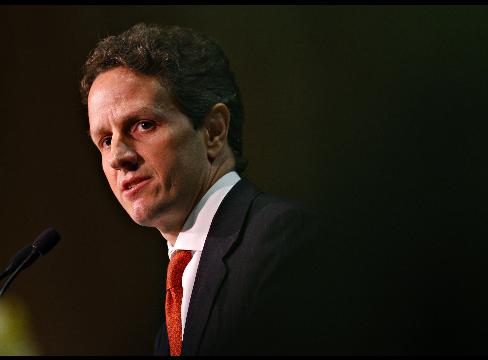– Paul Craig Roberts On The U.S. Leadership: “They Are Criminals” – The Potential Here Is Far Worse Than The Great Depression
– Jim Rogers: Obama administration run by people who caused the latest financial problems: “These people don’t know what they’re doing,” he said.
Treasury secretary nominee Geithner apologizes for ‘avoidable mistakes’ on taxes

He provides more details on unpaid taxes to the Senate Finance Committee. A confirmation vote could come as soon as Thursday.
Reporting from Washington — President Obama’s Treasury secretary nominee, Timothy F. Geithner, apologized to senators Wednesday for failing to pay $34,000 in self-employment taxes while he was working at the International Monetary Fund.
“These were careless mistakes. They were avoidable mistakes, but they were unintentional,” Geithner told the Senate Finance Committee. “I should have been more careful. I take full responsibility for them.” Geithner paid the taxes after an Internal Revenue Service audit uncovered the omission.
The controversy, especially relevant because Geithner would oversee the IRS if confirmed as head of the Treasury Department, is unlikely to derail his nomination. As president of the Federal Reserve Bank of New York, Geithner worked closely with the Bush administration in dealing with the current financial crisis and is widely viewed by Republicans as well as Democrats as the most qualified candidate for the job.
A vote on his nomination could come as soon as today.
Geithner provided new details about the tax errors, which began in 2001 and continued until he was audited in 2006. He said that the error occurred in a year in which he had income from three different employers, and in which he prepared his own taxes using TurboTax software, which did not flag the problem.
Geithner said he never revisited the issue, and the error was perpetuated in subsequent years, even when an accountant prepared his taxes.
As an international organization, the IMF does not withhold taxes for the U.S. government and so employees are responsible for filing their own taxes — both the employee portion and the employer portion. Geithner received payments from the IMF for the employer portion of his taxes, but paid only the employee portion on his Social Security taxes.
Geithner acknowledged that his tax liabilities were clear from documents supplied to him by the IMF, and that he should have paid more attention to the paperwork.
“As I look back at all the documents that I provided the committee . . . both in the initial documents the IMF staff gave me to explain the way the IMF system works, in the quarterly statements I received from the IMF, in the annual tax forms I received — in all those documents, looking back, it was very clear,” Geithner said.
After the 2006 audit, Geithner said he paid the back taxes as computed by the IRS. The penalties on those taxes eventually were waived, Geithner said, because the self-employment tax error is a common one for IMF employees.
But the IRS only demanded the taxes due starting in 2003, even though the error first occurred in 2001.
Sen. Jon Kyl (R-Ariz.) asked Geithner pointedly whether he choose not to pay the earlier taxes because they were beyond the IRS’ three-year statute of limitations.
Geithner replied that he simply did not think about the issue.
“If I thought about it more at the time, I would have asked a lot more questions. I would have handled it differently, and I regret not having done so,” Geithner said. “This is my mistake, and it’s my responsibility.”
Kyl accused Geithner of straining credulity by saying he never thought about the statute of limitations.
“It’s legal to rely on the statute of limitations. There’s nothing wrong with relying on the statute of limitations,” Kyl said. “I think what some people find implausible is that that isn’t what you’re saying you did. What you’re saying is that you didn’t think about it until it was brought to your attention in connection with your nomination.”
“Senator, I have worked in public service all my life,” Geithner responded. “My first job in government was as an employee of the Treasury. I grew up in government with a deep appreciation of the obligations that come with that. I would never put myself in the position where . . . I was intentionally not meeting my obligations as an American taxpayer.”
By Maura Reynolds
January 22, 2009
Source: Los Angeles Times